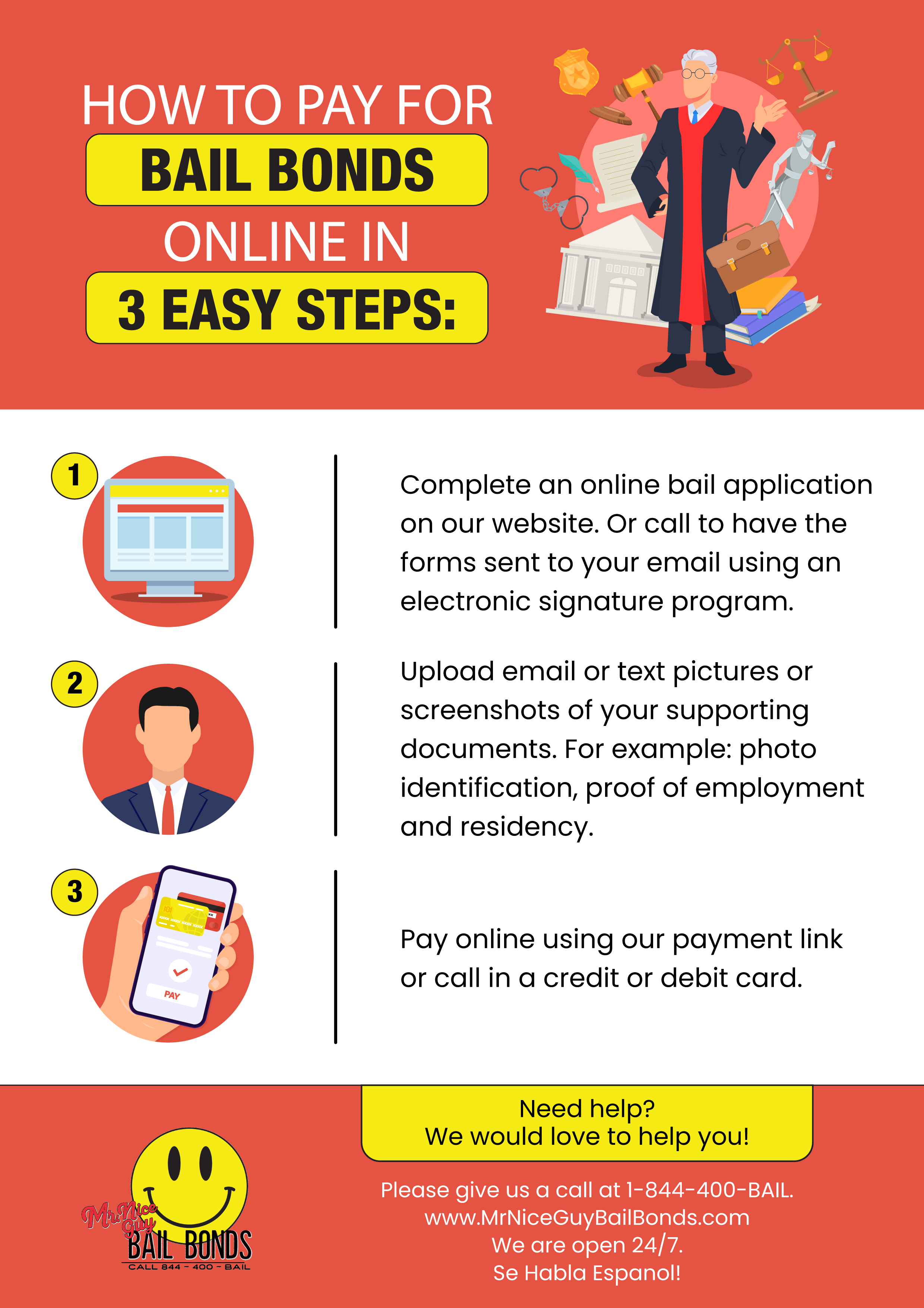Your Complete Overview to Understanding Bond Bond Terms
Browsing the complexities of bail bond terms is an essential component of efficiently handling legal difficulties. A thorough understanding of important ideas such as bail, collateral, and the implications of a failure to appear is indispensable for defendants and their families. Numerous kinds of bond bonds and their connected expenses can substantially affect the decision-making process. As we check out these elements, you may find that mistaken beliefs commonly shadow judgment, bring about possibly destructive effects. What subtleties lie below the surface of these terms that could form your strategy in a time of demand?
What Is a Bond Bond?
A bail bond is a legal contract between a defendant, a bail bondsman, and the court, guaranteeing that the defendant will appear for scheduled court proceedings for their launch from custody. bail bonds service. This legal tool offers to protect the passions of the court by supplying a monetary incentive for the offender to adhere to judicial needs
Upon the defendant's release, the bail bond continues to be essentially up until the conclusion of the litigation. Failure to show up in court might result in forfeiture of the bond amount, and the bondsman may pursue the offender to recover the costs incurred. bail bonds service. Consequently, comprehending the dynamics of bail bonds is vital for offenders and their households as they navigate the judicial process.
Trick Terms Clarified
Recognizing bond bonds includes familiarizing oneself with several vital terms that are indispensable to the procedure. One necessary term is "bail," which refers to the quantity of cash needed to protect the release of a defendant from custodianship while waiting for test. "Bondsman," or "bail bondsman," is another crucial term, signifying an expert who offers the required funds for bond in exchange for a fee, commonly a portion of the total bond amount.
" Collateral" is additionally significant; it represents assets vowed by the accused or co-signer to ensure the bond's settlement. If the defendant falls short to appear in court, the security may be waived. The term "indemnitor" refers to the person who accepts be responsible for the bond, typically a family member or friend of the charged.

Kinds Of Bond Bonds
Various kinds of bail bonds serve different objectives and accommodate particular scenarios in the lawful system. The most usual type is the surety bond, where a bond bondsman ensures the offender's look in court in exchange for a cost, commonly 10% of the bail amount. This kind is widely made use of since it allows people who can not afford the complete bail to secure their launch.
One more type is the cash bond, which needs the complete bail quantity to be paid in cash to the court. This option is usually chosen for reduced bail amounts, as it makes certain the accused's launch without involving a bondsman (bail bonds service). If the offender appears in court as needed, the cash is reimbursed at the verdict of the situation
In addition, there are property bonds, where realty is made use of as collateral for the bail quantity. This can be a viable choice for people who have residential or commercial property yet lack liquid funds.
Last but not least, federal bonds put on government situations and are generally more challenging to get, typically requiring the help of a specialized bail bondsman. Understanding these variants is important for navigating the bail system successfully.
Usual False Impressions
Misconceptions regarding bail bonds usually lead to confusion for defendants and their family click now members. One widespread misconception is that paying bond warranties launch from prison. In fact, bail offers as a monetary guarantee that the accused will appear at their scheduled court hearings. If they fall short to do so, the bail amount may be waived.
An additional common misconception is that all bail bonds coincide. There are numerous sorts of bond bonds, including surety bonds, cash money bonds, and home bonds, each with unique characteristics and needs. Recognizing these differences is essential for making informed choices.
In addition, lots of people think that bail bond agents are merely car loan sharks. In reality, accredited bail bond representatives operate within a controlled framework, billing a costs for their services, which is typically a percent of the overall bail quantity.
Finally, some think that just wealthy people can pay for bond. Nonetheless, bail bond solutions are developed to assist those that may not have immediate access to large amounts of cash, permitting a wider section of the population to secure their release while waiting for trial. Clear understanding of these mistaken beliefs can considerably alleviate stress and anxiety throughout a challenging time.
Recognizing Costs and Expenses
While browsing the bail bond procedure, it is important to know the charges and costs linked with protecting a bond. Bond bonds typically need a non-refundable costs, which is a percent of the total bail amount set by the court. This premium normally varies from 10% to 15%, depending upon state laws and the bail bond firm's plans.
In enhancement to the costs, there might be various other charges included. These can include administrative charges for processing the bond, security fees if possessions are needed to secure the bond, and potential renewal fees if the bond requires to be expanded. It is crucial to ask the bail bond representative for a detailed failure of all prices to stay clear of unforeseen costs.
Conclusion

Comments on “Work with Trusted Experts in Bail Bonds Service.”